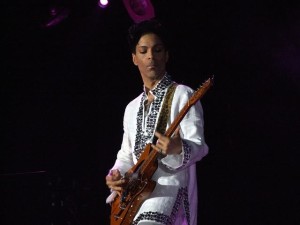Complicated in Life, Prince Now Even More Complicated After Death
Prince’s passing proves why you need a will regardless of your age or net worth
In the days following Prince’s death, news outlets have speculated on his last days, discussed his musical legacy, and highlighted the many tributes to him across the world.
In life, the seven-time Grammy winner was widely known as a complex individual, breaking ground in many ways. And rarely, at least publicly, did he care to answer those who asked “why” he took the non-traditional steps he did.
Many are now trying to answer the question of what will happen to his wealth and property, which reportedly includes upwards of $100 million and albums-worth of unreleased music. While Prince undoubtedly had lawyers on his payroll — he was known to challenge copyright infringement tenaciously — we have now learned that he did not have a will.
When you die without a will, in legal terms it is called dying intestate. While there are several ways you can die intestate, the most common is the most obvious — you never write a will.
So what happens when you die without a will?
The laws in your state of residence at the time of your death will, by default, dictate how estate assets are distributed. Generally speaking, intestacy rules distribute an estate’s assets to family members. Spouses and children usually inherit first, and if there are no spouses and/or children, the next levels of relatives are considered, such as living parents.
If you don’t have immediate relatives, the court will consider more distant relations. However, there is usually a certain point when the line of relation is so remote that the state deems the deceased to have died without relatives. If this is the case, the state where the decedent lived is generally the beneficiary of the estate. This means that when you die, your estate will be nothing more than a small line item on the state’s revenue sheet.
In his 1986 hit song, “Kiss,” Prince sang, “You don’t have to be rich to be my girl.” When it comes to writing a will, you also don’t need to be rich. While most of us — for better or worse — won’t die with his riches, it is smart to take the time to create a will.
Regardless of whether you have millions of dollars in savings or zero, when you die someone will have to determine your assets, file paperwork in probate court for a judge to review, and ultimately distribute any property, money or belongings you have.
Having a will is the best way to ensure your estate can progress seamlessly through probate with as little headache as possible for the people who survive you. Do you want to take the chance that state laws will match up with your wishes? If not, it’s wise to put your wishes in a will.
Making a will not only saves your loved ones the headache of a potentially more difficult estate administration, but also can help them find peace. In 1984’s “When Doves Cry,” Prince sang, “Why do we scream at each other?” Well, here at Executor.org we have heard too many stories of families ending up in arguments after a loved one dies. From disputes over who gets money or a item of sentimental value to who should take on the responsibility of serving as the estate executor, not leaving specific instructions in a will can cause discord among your loved ones.
When you take the time to create a will, you aren’t just giving yourself the comfort of knowing that your wishes will be followed. You are sparing your family and friends the stress, worry and potential arguments that can come from trying to guess your wishes.
As we have often noted before, few of us like to think about or discuss death. Maybe you are young and/or healthy and feel like you have plenty of time to get around to sitting down with a lawyer to draw up a will. Perhaps that’s what Prince thought, who when he died on April 21st was only 57 years old. But whether you are young or old, it is always wise to have a will in place and update it as needed, as time passes.
To help get you started in creating a will, we here at Executor.org have created an easy-to-follow checklist to simplify the process for you — and ultimately your executor. The checklist walks you through everything from choosing an executor and creating a list of your assets to planning your funeral. It also addresses end-of-life considerations, such as selecting a power of attorney and creating a living will.
While complexity in life can add mystery and intrigue to your world, the lack of a will when you die will likely create frustration and conflict for your loved ones. At Executor.org, we strongly encourage you to comprehensively plan your estate to simplify things after you’re gone.
Use our tool to simplify the process and minimize your stress.
